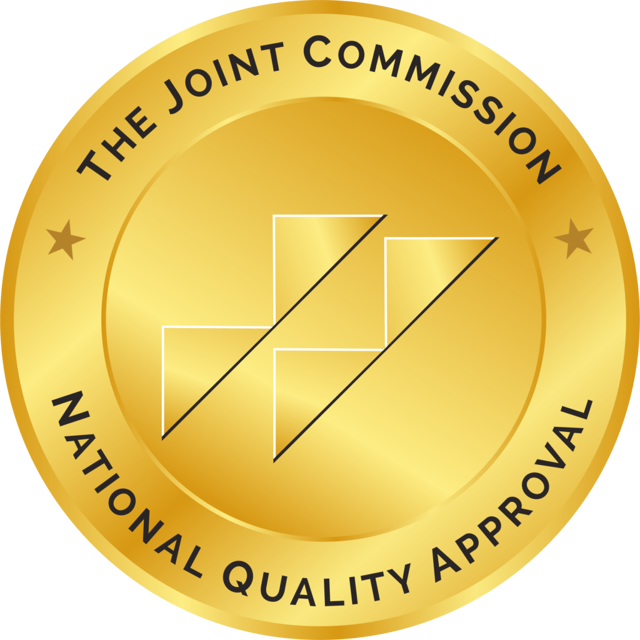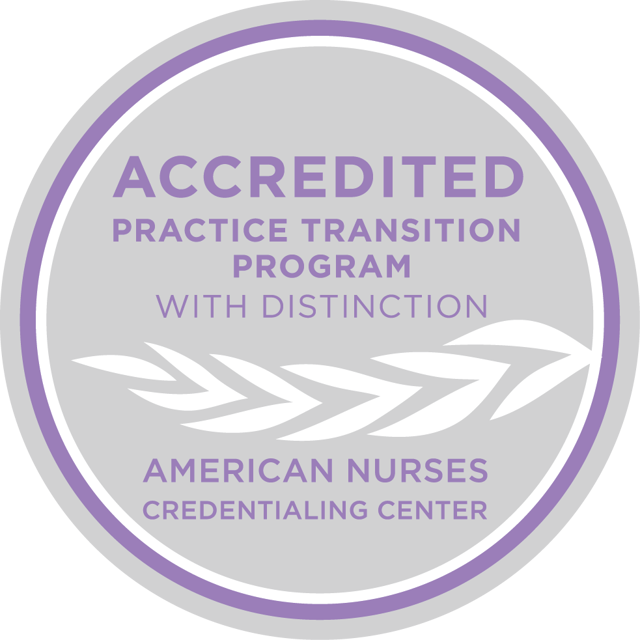
Specialty Care
Infusion treatments, whether at home, in a healthcare clinic or other non-hospital setting, require highly trained Specialty Care nursing and pharmacy support. Trust becomes essential for these higher-risk infusion therapies that require ongoing care.

Clinical Nutrition
Nutrition plays an essential role in sustaining quality of life for those who require care for complex conditions. Pentec Health provides personalized clinical nutrition solutions and superior community-based care.

Disease States
Managing the multifaceted needs for a variety of conditions requiring clinical nutrition and specialty care therapies, services and products. This includes patients with kidney disease, kidney failure, chronic, non-healing wounds, gastrointestinal conditions, rare metabolic disorders, chronic pain, muscle spasticity or cancer within or that has metastasized in the liver.

Continuing Education
By leveraging decades of clinical expertise, we are able to successfully demonstrate our industry leadership through webinars, speaker programs and research studies. We take pride in sharing valuable insights that enhance clinician education and practice.

Patient Resources
We are committed to supporting patients by empowering them with knowledge and resources needed to navigate their healthcare journey with confidence.

Pentec Health
Pentec Health is a national leader in clinical nutrition and specialty care integrating pharmacy services with clinical excellence to enhance the complex care journey.

The Role of Clinical Nutrition and Healing
The journey toward health and recovery when managing various medical conditions is multifaceted and often challenging.
While medical interventions are paramount, a crucial therapeutic approach may significantly influence the speed and success of this journey: clinical nutrition. More than just general advice on eating well, clinical nutrition involves targeted and evidence-based strategies designed to support the body’s healing mechanisms. We will explore how specialized nutritional care is pivotal in promoting recovery and well-being for patients within dialysis clinics, nephrology practices, wound care centers, and metabolic centers.
What is clinical nutrition?
Clinical nutrition is the science and practice of using nutritional interventions as medical therapy to treat and manage health conditions. Simply put, it is the use of nutrition science to treat medical conditions and support recovery.
Unlike general dietary guidance, clinical nutrition is precisely calibrated to address specific physiological needs, metabolic demands, and healing requirements. It represents a targeted, evidence-based approach that can significantly impact patient outcomes across multiple specialties.
Clinical nutrition encompasses various delivery methods:
- Oral nutrition supplements: Specialized formulations designed to address specific nutritional deficiencies.
- Medical foods: Specifically formulated products intended for the dietary management of diseases with distinctive nutritional requirements.
- Enteral nutrition: Delivery of nutrition via oral supplements or directly to the gastrointestinal tract via feeding tubes.
- Parenteral nutrition: Intravenous delivery of nutrients, bypassing the digestive system entirely.
When properly implemented, clinical nutrition becomes a powerful therapeutic tool that can accelerate healing, prevent complications, and improve quality of life for patients with complex medical conditions.
How does clinical nutrition help drive the healing process?
The relationship between nutrition and healing is scientifically established and clinically significant.1 When the body is healing, nutritional demands increase substantially. Meeting these enhanced requirements provides the essential building blocks for recovery.
Clinical nutrition supports healing through multiple pathways:
- Tissue Regeneration: Proteins serve as the fundamental building blocks for new tissue formation. Specific amino acids like arginine and glutamine play crucial roles in wound repair and immune function.
- Immune System Support: Adequate levels of vitamins A, C, and E, along with minerals such as zinc and selenium, strengthen the immune response, vital for preventing infection in vulnerable patients. 2,3
- Inflammation Management: While some inflammation is necessary for healing, chronic inflammation impedes recovery. Omega-3 fatty acids and other nutrients help regulate inflammatory responses. 4
- Energy Provision: Healing is metabolically demanding. Sufficient calories, primarily from carbohydrates and fats, fuel cellular activities essential to the repair process.
Research consistently shows that malnutrition or suboptimal nutrition significantly delays healing, increases complication risks and extends recovery times across all body systems.1
Clinical Nutrition in specific focus areas
Nourishing kidney patients in dialysis and nephrology
Patients with chronic kidney disease (CKD), particularly those undergoing dialysis, face unique nutritional challenges. The combined effects of kidney dysfunction and dialysis treatments create a complex nutritional landscape characterized by:
- Nutrient losses during dialysis procedures
- Chronic inflammation
- Protein-energy wasting
- Poor appetite and diminished oral intake
- Altered metabolism of proteins, fats, and carbohydrates
The challenge: Balancing protein needs (which can vary depending on CKD stage and dialysis type), controlling electrolytes like potassium and phosphorus, managing fluid intake, and ensuring adequate calorie intake is a complex act.5
How clinical nutrition helps:
- Medical Nutrition Therapy (MNT): Tailored dietary plans created by registered dietitians help patients manage these complexities, preserving kidney function where possible and maintaining nutritional status.
- Specialized Formulas: For patients on dialysis, meeting nutritional needs orally can be challenging. Intradialytic Parenteral Nutrition (IDPN) (for hemodialysis) and Intraperitoneal Nutrition (IPN) (for peritoneal dialysis) can provide essential nutrients directly during their dialysis treatment. These therapies deliver protein, amino acids, and other vital nutrients to combat malnutrition. You can read more about these in our blog: IDPN & IPN Nutrition Therapy for Dialysis Patients, What’s the Difference?
Managing building blocks for repair in wound care centers
Chronic wounds, including diabetic foot ulcers, pressure injuries, and venous leg ulcers, represent a significant healthcare challenge affecting approximately 6.5 million patients in the United States alone.6 These wounds fail to progress through normal healing stages and become stuck in a prolonged inflammatory state, causing considerable pain and decreased quality of life for patients.
The challenge: Conditions like diabetes or vascular disease, common in patients with chronic wounds, can further complicate nutritional intake and absorption.
How clinical nutrition helps:
- Targeted Supplementation: Specific oral nutrition supplements or, in some cases, parenteral nutrition (PN), can deliver the high levels of nutrients required to support wound closure and tissue regeneration.
- Medical Nutrition Therapy (MNT): Dietitians work with patients to optimize their diet, ensuring they receive the necessary components for healing, while also managing any underlying conditions like diabetes.
Specialized nutrition for rare disorders
Individuals with inherited metabolic disorders (IMDs) and other rare diseases have genetic conditions that affect their body's ability to break down specific nutrients in food, often amino acids from protein. This can lead to a buildup of harmful substances if not meticulously managed.
The challenge: Lifelong adherence to highly restrictive diets is essential to prevent severe
health problems, including developmental delays and metabolic crises.
How clinical nutrition helps:
- Medical Foods & Low Protein Diets: The cornerstone of IMD management is a specialized diet that restricts the problematic nutrients while ensuring all other nutritional needs for growth and development are met. This involves using carefully selected medical foods (special formulas) and low protein foods. Many of these are available without prescription, empowering patients with IMDs with greater control over their care.
Nutrition as medicine
Clinical nutrition is not merely supportive, it's therapeutic. For patients managing kidney disease, chronic wounds, or metabolic disorders, specialized nutritional interventions are often as crucial as medications or procedures. By addressing the unique nutritional needs of each patient, healthcare providers can unlock powerful healing mechanisms that improve outcomes and enhance quality of life.
If you are a healthcare provider or a patient who would like to learn more about how clinical nutrition can support healing, please reach out to us via our contact page: pentechealth.com/contact
References
1. Stechmiller, Joyce K. ‘Understanding the Role of Nutrition and Wound Healing’. Nutrition in Clinical Practice, vol. 25, no. 1, Feb. 2010, pp. 61–68.
2. Research, Institute of Medicine (US) Committee on Military Nutrition. ‘Vitamin E, Vitamin C, and Immune Response: Recent Advances’. Military Strategies for Sustainment of Nutrition and Immune Function in the Field, National Academies Press (US), 1999. www.ncbi.nlm.nih.gov, https://www.ncbi.nlm.nih.gov/books/NBK230984/.
3. De la Fuente, Mónica, et al. ‘Vitamin C and Vitamin C plus E Improve the Immune Function in the Elderly’. Experimental Gerontology, vol. 142, Dec. 2020, p. 111118. ScienceDirect, https://doi.org/10.1016/j.exger.2020.111118.
4. Calder, Philip C. ‘Omega-3 Fatty Acids and Inflammatory Processes’. Nutrients, vol. 2, no. 3, 3, Mar. 2010, pp. 355–74. www.mdpi.com, https://doi.org/10.3390/nu2030355.
5. ‘Eating & Nutrition for Hemodialysis - NIDDK’. National Institute of Diabetes and Digestive and Kidney Diseases, https://www.niddk.nih.gov/health-information/kidneydisease/kidney-failure/hemodialysis/eating-nutrition. Accessed 16 May 2025.
6. Sen, Chandan K., et al. ‘Human Skin Wounds: A Major and Snowballing Threat to Public Health and the Economy’. Wound Repair and Regeneration: Official Publication of the Wound Healing Society [and] the European Tissue Repair Society, vol. 17, no. 6, 2009, pp. 763–71. PubMed Central, https://doi.org/10.1111/j.1524-475X.2009.00543.x.

Proudly Quality Accredited
National Quality Approval
The Joint Commission

Accredited Practice Transition
Program With Distinction
American Nurses Credentialing Center
By using this website you accept our privacy policy. Choose the browser data you consent to allow:
